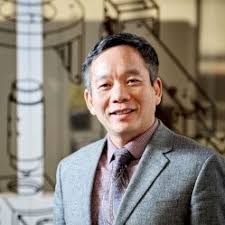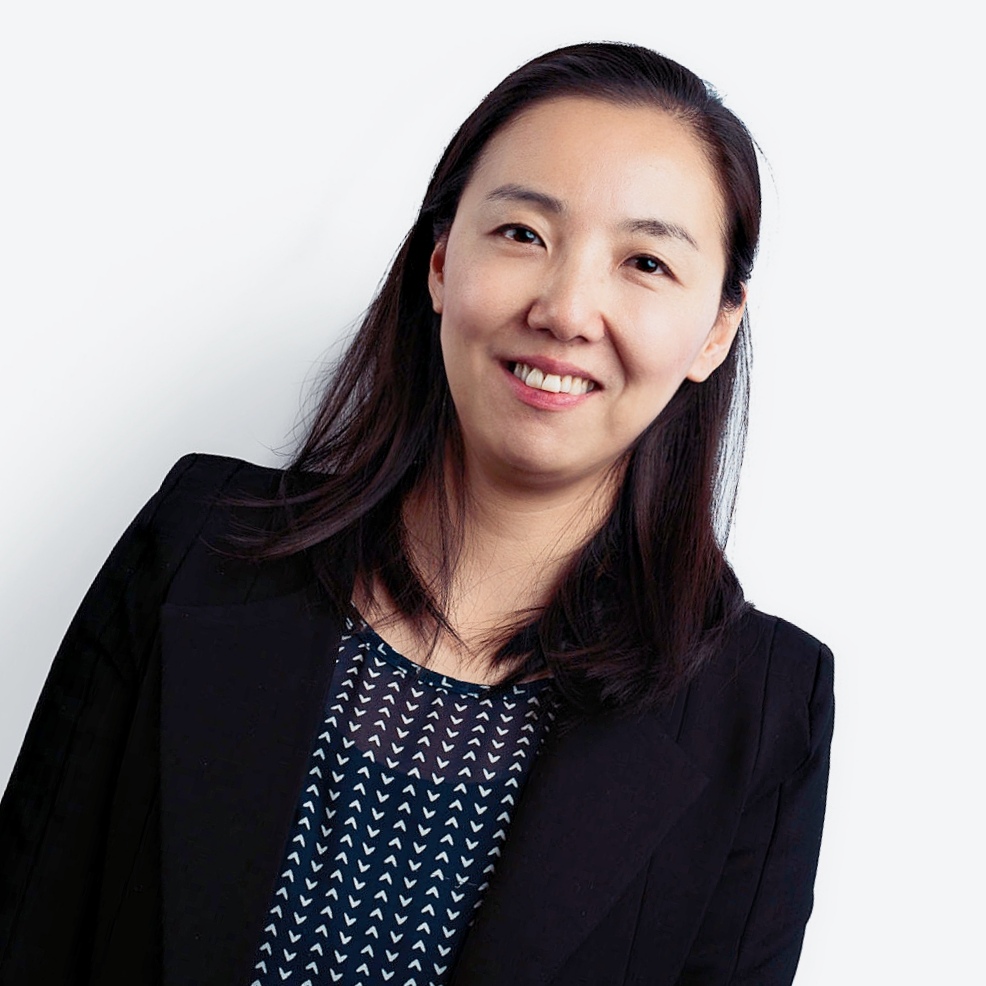
Keynote Speakers

Polytechnic of Bari, Italy
Maria Pia Fanti is full professor of System and Control Engineering at the Department of Electrical and Information Engineering of the Polytechnic of Bari (Italy). She received the Laurea degree in Electronic Engineering from the University of Pisa (Italy), in 1983. She was a visiting researcher at the Rensselaer Polytechnic Institute of Troy, New York, in 1999. Since 1983 she has been with the Department of Electrical and Electronic Engineering of the Polytechnic of Bari (Italy), where she was Assistant Professor from 1990 till 1998 and Associate Professor from 1990 till April 2012. Maria Pia Fanti is IEEE fellow for contributions to modeling and control of discrete event systems. Her research interests include Discrete event systems, Petri net, consensus algorithms, networked and control systems, management and modeling of logistic systems, automated manufacturing systems, automatic guided vehicle systems, traffic networks, and healthcare systems. Maria Pia Fanti is author of 2 books and 280+ papers including 85 journal papers including, 11 book chapters and many conference proceeding papers.
Speech Title: Artificial Intelligence Approaches for Cooperative, Connected and Automated Mobility
Abstract: Cooperative, Connected and Automated Mobility (CCAM) is expected to reshape the way of travelling and moving in Europe and around the world. By the CCAM, the automated vehicles have to be integrated into the mobility and transport system by designing and implementing infrastructures, new services, platforms, cooperation and governance models. The smart traffic management and the deployment of CCAM innovative technologies and services is increasing efficiency and reducing congestion.The talk will present some approaches developed to accelerate the integration of innovative CCAM technologies and systems for passengers and goods in terms of design and implementation of enhanced physical, digital and operational infrastructures. In particular, the talk will show some innovative techniques for designing and applying traffic control methods such as signalized intersection management, route planning services and last mile delivery strategies. The used methodologies encompass global and distributed optimization, artificial intelligence techniques and simulation frameworks applied for a full integration of CCAVs in the real traffic for transportation of both passengers and goods. The talk will also describe some recent results obtained in case studies by simulation environments and in the field.

University of Leeds, UK
Prof Shane (Sheng Q) Xie, Ph.D., FRSNZ, FEngNZ, FIEEE, FASME, FIMechE and FAAIA, is the Chair of Robotics and Autonomous Systems and Director of the Rehabilitation Robotics Lab at the University of Leeds, and he was the Director of the Rehabilitation and Medical Robotics Centre at the University of Auckland, New Zealand (NZ, 2002-2016). He has >30 years of research experience in healthcare robotics and exoskeletons. He has published > 500 refereed papers and 8 books in rehabilitation exoskeleton design and control, neuromuscular modelling, and advanced human-robot interaction. He has supervised >15 postdocs, 100 PhDs and 80 MEs in his team with funding of >£30M from five countries since 2003. His team has invented three award-winning rehabilitation exoskeletons. He is an expert in control of exoskeletons, i.e. impedance control, adaptive control, sliding mode control, and iterative learning control strategies. He has received many distinguished awards including the New Zealand Science Challenge Award, the David Bensted Fellowship Award, and the AMP Invention Award. He is an elected Fellow of Royal Society of New Zealand, Fellow of Engineering New Zealand, Fellow of IEEE, ASME, IMechE and AAIA. He was the Technical Editor for IEEE/ASME Transaction on Mechatronics, Associate Editor for Mechatronics Elservier and Editorial member of many top journals in Mechatronics and Robotics.

University of Agder, Norway
Jing Zhou is a Professor at the Faculty of Engineering and Science, University of Agder, Norway. She is the leader of Robotics and Automation group, and the research director of Priority Research Center of Mechatronics. Prior to joining the University of Agder in 2016, she was a senior research scientist at International Research Institute of Stavanger in Norway from 2009 to 2016 and a Postdoctoral fellow at Norwegian University of Science and Technology from 2007 to 2009, respectively. She received the Ph.D. degree from Nanyang Technological University, Singapore in 2006. Her research interests include adaptive control, nonlinear control, adaptive dynamics programming control, non-smooth nonlinearities, network control systems, robotics and mechatronics, and control applications to offshore operations, drilling and well systems, crane systems, marine vessels, and energy systems.
Dr. Zhou is a Fellow of Norwegian Academy of Technological Sciences (NTVA) and holds a position as an AdCom members-at-large at IEEE Industrial Electronics Society. She serves as an Associate Editor for several journals, including IEEE Transactions on Automatic Control, IEEE Transactions on Industrial Electronics, IEEE Transactions on Cybernetics, IEEE Transactions on Neural networks and Learning Systems, Systems & Control Letters, and the Conference Editorial Board of the IEEE Control Systems Society. She has been actively involved in organizing IEEE conferences in the roles of General Chair, General Co-Chair, Technical Program Chair, Technical Program Committee, and Invited Session Chair.
Invited Speakers

Zurich University of Applied Sciences, Switzerland
Roland Büchi, received the M.S. degree in Electrical Engineering at ETH Zurich in 1994 and the Ph.D Degree in 1996 at the Institute of Robotics at ETH Zurich. He is head of the section of Information Technology, Electrical Engineering and Mechatronics and researcher in the field of control theory at ZHAW, Zurich University of Applied Sciences, School of Engineering, Winterthur, Switzerland.

Ruhr West University of Applied Sciences, Germany
Prof. Dr. Saulo H. Freitas Seabra da Rocha is a Full Professor at the Institute of Energy Systems and Energy Management at Ruhr West University of Applied Sciences in Germany. His current research focuses on robotized process engineering, integrating robotics, automation, and digital sensing technologies to improve efficiency and sustainability in industrial processes. He leads projects in the field of robotic pre-recycling, X-ray–based material fractionation, and intelligent systems for the Circular Economy. Prof. Rocha’s broader research background includes work on biogenic carbon materials and the development of sustainable energy and environmental technologies.

Ostbayerische Technische Hochschule Regensburg, Germany
Jan Dünnweber completed his studies of computer science with a Diploma from Ludwig-Maximilians-Universität München in 2003.Then, he was a research associate at Westfälische-Willhelms Universität Münster. Since 2008, he holds a PhD in computer science and leads applied research and industrial software development projects.Since 2012, Jan Dünnweber is a professor at Ostbayerische Technische Hochschule Regensburg (OTH). He teaches operating systems, distributed systems and programming courses (C, C++ & Java). He is also a supervisor of applied research projects performed in cooperations of the OTH with the local government and regional industries. His research is focused on methods for programming high-performance platforms and on applications of soft computing, artificial intelligence and big data/cloud technologies for automation and improved mobility and sustainability, e.g., in smart cities.

University of Antwerp, Belgium
Stijn Derammelaere was born in Kortrijk, Belgium, in 1984. He obtained his PhD in 2013 at Ghent University, focusing on the motion control of fractional horsepower machines. In 2017, he joined the University of Antwerp, where he established a research team on motion control and optimization (https://youtu.be/75TqLW2B-JQ). He has been serving as an associate professor in Mechatronics there since 2022. He is also an associate editor of the Discover Mechanical Engineering journal published by Springer. He is a member of Flanders Make, the strategic research centre for the manufacturing industry.
He is a member of the CoSys-Lab research group, where he contributes to the lab’s mission on in-depth research on co-design, motion control, and optimization of mechatronic systems. Together with the full Cosys-Lab group, professor Derammelaere aims to produce re-usable results that align with industry needs and foster impactful collaboration.
By 2025, Associate Professor Derammelaere had coordinated over 11 projects and was (co-)author of 64 articles included in the Web of Science. He has supervised 11 PhDs, including both completed and ongoing projects. His full publication list can be found https://www.uantwerpen.be/en/staff/stijn-derammelaere/publications/.

University of Udine, Italy
Lorenzo Scalera achieved the Master’s degree in Mechanical Engineering (cum laude) at University of Trieste in 2015, and the Ph.D. in Industrial and Information Engineering at University of Udine (Italy) in 2019. In 2018 he was a visiting Ph.D. student at the Stevens Institute of Technology in Hoboken (NJ, USA). In 2019 he was a Post Doc Research Fellow at Free University of Bozen-Bolzano (Italy). From 2020 to 2024 he was Assistant Professor of Mechanics of Machines at the Polytechnic Department of Engineering and Architecture of the University of Udine. Since 2024 he is Associate Professor at University of Udine. He currently serves in the Editorial Board of IEEE Robotics and Automation Letters. He is author of more than 100 international publications in scientific journals and conferences. His research interests include dynamic modelling of mechatronic and robotic systems, trajectory planning, and collaborative robotics.
